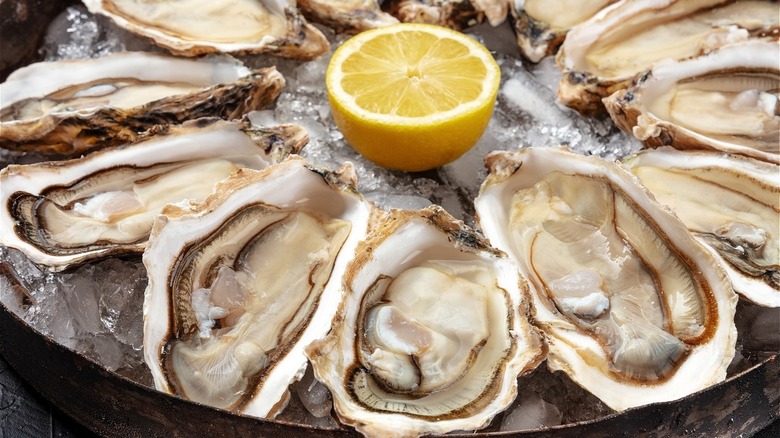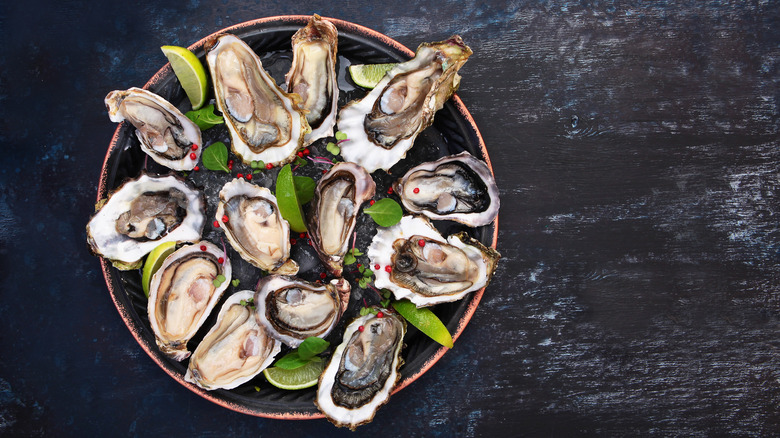Oysters Might Not Make For The Best Valentine's Day Food. Here's Why
What does your Valentine's Day look like? Dressing up perhaps, lots of candles and roses with a stunning home-cooked dinner, finished off with a chocolate cake for two? All good ideas, of course! What matters most in this, however, is what exactly you're going to be serving at the dinner table. There are some obvious go-to items when it comes to a romantic meal: think chocolates, champagne, and maybe a steak. But if you're thinking that an oyster should be on the menu, thanks to the popular belief that it's an aphrodisiac food, you might want to think again.
According to Smithsonian, no food item has been scientifically proven to be an aphrodisiac, let alone oysters. They say the myth dates back to the Roman Empire. And then there's Giacomo Girolamo Casanova, who famously romanced over 100 women in the 18th century with (he seemed to think) the help of a regular diet of oysters. Then, professor George Fisher published a paper in 2005 indicating that the marine species of bivalve mollusks, which includes oysters, contain certain acids that boost sex hormones in rats.
Science or no, oysters have been inseparable from the idea that they are an aphrodisiac, and so must qualify to be a part of any meal meant to romance a date. However, besides the fact that oysters aren't actually an aphrodisiac, the FDA says that eating raw oysters in some cases can even prove fatal.
Raw oysters can be dangerous
According to Michael Krychman, a gynecologist and sexual health specialist, desire is a concept more complicated than just eating oysters when you need to boost it (via Smithsonian). While oysters are fairly safe to eat and do contain zinc, which is important to the production of testosterone, there's a lack of scientific evidence to prove that they can boost desire.
On the contrary, if you're cooking a meal at home and preparing the oysters yourself, it's crucial to make sure that they are not consumed raw or undercooked. According to the Centers for Disease Control and Prevention, the habitat in which oysters live makes them naturally susceptible to vibrio bacteria. When not cooked properly, this bacteria can result in food-borne illnesses like vibriosis, an illness that infects an estimated 80,000 people in the U.S. each year, inflicting vomiting and diarrhea. The Food and Drug Administration adds that vibriosis is particularly harmful to anybody with a weak immune system, liver diseases, or diabetes; in some cases, the seemingly harmless seafood can prove to be fatal.
Going through the trouble of cooking oysters properly for your date can be way more effort than it is worth. Rather than charming your date with a romantic dinner, feeding them improperly prepared oysters on Valentine's Day is more likely to leave them with a serious bout of digestive distress than turn the sex hormones on.

